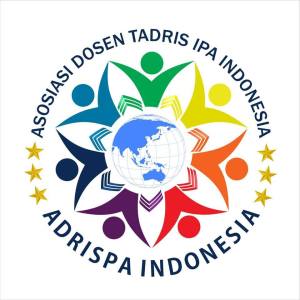ASSESSMENT DEVELOPMENT TO MEASURE SCIENCE PROCESS SKILLS ON THE INTERACTION OF LIVING THINGS WITH THEIR ENVIRONMENT IN JUNIOR HIGH SCHOOL
DOI:
https://doi.org/10.21154/insecta.v2i2.3185Keywords:
Assessment Development, Science Process SkillsAbstract
This study aims to develop an assessment to measure science process skills on living things interaction and their environment. The research used research and development (R&D) that consist research and initial information collection, planning, initial product format development, small-scale trials, product revisions, initial trials, and final products. The trial subjects were expert subjects (assessment experts, material experts and linguists), and the subjects were students of state junior high school in Bengkulu City as product users. Data were analyzed descriptive qualitatively and quantitatively. Feasibility assessment by three validator experts developed on the assessment aspect of 89%, material aspect of 93%, and language aspect of 93%, overall was declared very feasible with an average of 92%. This showed that the assessment of science process skills to measure science process skills was stated to be very suitable to be used to measure the level of students' science process skills. This assessment was the science assessment, where in the development of the science assessment used formative assessment because this assessment was given to every lesson and can be carried out on sub-subjects or each subject. In the development of this formative assessment, multiple choice tests were developed.References
Bambang Sumintono dan Wahyu Widhiarso, (2015) Aplikasi Pemodelan RASCH Pada Assessment Pebdidikan Cimahi: Trim Komunikasi.
Ilmi, N., Desnita, D., Handoko, E., & Zelda, B. (2016). Pengembangan Instrumen Penilaian Keterampilan Proses Sains pada Pembelajaran Fisika SMA. In Prosiding Seminar Nasional Fisika (E-Journal) (Vol. 5, pp. SNF2016-RND).
Irsyad, M. (2014). Pengembangan Asesmen Autentik Pada Materi Interaksi Makhluk Hidup dengan Lingkungan untuk Meningkatkan Kemampuan Berpikir Kritis Siswa (Doctoral dissertation, Universitas Negeri Semarang).
Juhairiyah, J. (2017). Assesmen Konten Isi Bidang Studi. Pedagogik: Jurnal Pendidikan, 4(1).
Kartika, A. T., Eftiwin, L., Lubis, M. F., & Walid, A. (2020). Profil Kemampuan Berpikir Kritis Siswa Kelas VIII SMP Pada Mata Pelajaran IPA. Jurnal Riset Teknologi dan Inovasi Pendidikan (JARTIKA), 3(1), 1-10
Kementrian dan Kebudayaan, M. P. (2013). Permendikbud No. 64 tentang Standar Isi Untuk Satuan Pendidikan Dasar dan Menengah [The Rule of the Minister of Education Number 54/2013 on the Graduate Standard for Primary and Secondary Levels of Education]. Retrieved February, 8, 2014.
Sari, Happy Komike. (2016).Peningkatan Keterampilan Proses Sains dan Hasil Belajar Fisika Siswa pada Model Pembelajaran Kooperatif Tipe Student Team Achievement Division. Tadris: Jurnal Keguruan Dan Ilmu Tarbiyah 1.1, 15-22
Stadler, M., Herborn, K., Mustafić, M., & Greiff, S. (2020). The assessment of collaborative problem solving in PISA 2015: An investigation of the validity of the PISA 2015 CPS tasks. Computers & Education, 157, 103964.
Sugiyono, P. Dr.(2017), Metode Penelitian Pendidikan: Pendekatan Kuantitatif, Kualitatif, R&D. Cetakan Ke-25. Bandung: CV Alfabeta.
Tawil, M., & Sari, L. (2014). Keterampilan-keterampilan sains dan implementasinya dalam pembelajaran IPA. Makasar: Badan Penerbit Unm.
Walid, A., Putra, E. P., & Asiyah, A. (2019). Pembelajaran Biologi Menggunakan Problem Solving Disertai Diagram Tree Untuk Memberdayakan Kemampuan Berpikir Logis Dan Kemampuan Menafsirkan Siswa. IJIS Edu: Indonesian Journal of Integrated Science Education, 1(1), 1-6.
.








